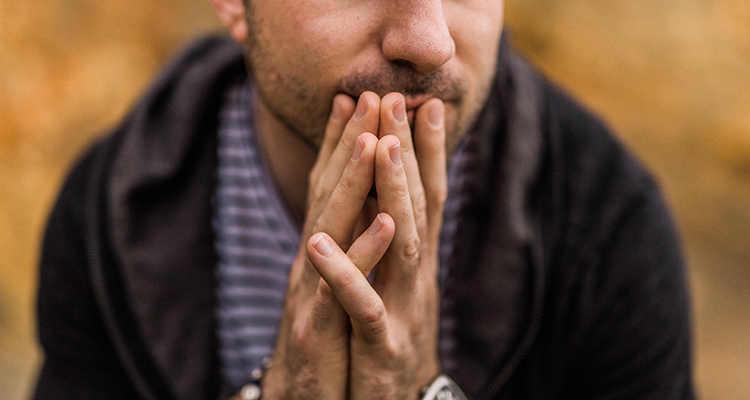Sleeping Pills & Medication for Insomnia
What is insomnia?

Insomnia is the most common sleep disorder, with up to 35% of adults experiencing insomnia. Insomnia causes problems falling asleep (known as onset insomnia) or staying asleep (known as maintenance insomnia). An individual can struggle with both onset and maintenance insomnia.
Sleep is vital for our body and mind to function properly. When sleep is lacking, it can cause many problems including issues with functioning (both cognitive and physical), problems with mood, lack of energy, increased risk of illness, and more! Insomnia can significantly impact your quality of life. The American Academy of Sleep Medicine states that, “The effects of insomnia can impact nearly every aspect of your life. Studies show that insomnia negatively affects work performance, impairs decision-making and can damage relationships.”
Since insomnia can have such a negative impact, it’s vital it’s treated so that people can get the restful sleep they need. Thankfully, there are lots of treatment options. The first line of treatment for insomnia is psychological and behavioural therapies. However, today we’ll be focusing on another option: pharmacological treatments for insomnia.
Content
Types of prescription sleep aids
Pharmacological treatments for insomnia can be prescribed, meaning that they can only be accessed through your doctor, or over the counter, meaning you can buy them at a chemist or shop. Prescription sleep aids can be a controversial topic due to their side effects and risk factors. It’s important to be informed about every aspect, so that you can make the right choice for you.

There are a wide range of types of prescription sleep aids. They typically come in tablet form. We’ll cover each type of sleep aid, along with the basics of how they work and their potential side effects.
Benzodiazepines
Benzodiazepines are sedatives. They’re also known as GABA agonists, because they work by increasing the effect of a neurotransmitter known as GABA (gamma amino butyric acid). GABA is responsible for inhibiting (or reducing) activity within certain areas of the brain. This article explains that, “GABA serves as an inhibitory neurotransmitter in the central nervous system, decreasing neuronal excitability.” By increasing the effect of GABA, activity within the brain is slowed even more which leads to a sedative effect, muscle relaxation, and decreased anxiety.

- Estazolam (ProSom)
- Flurazepam (Dalmane)
- Quazepam (Doral)
- Temazepam (Restoril)
- Triazolam (Halcion)
Benzodiazepines have a long list of side effects and risks. Side effects will vary depending on the individual, but it’s important to be aware of them so you can make an informed choice. Some of the more common side effects and main risks include:
- DependencyThe risk of becoming dependent on benzodiazepines is high, with up to 40% of long term users reporting dependency. This means that you become reliant on the medication and start to feel as though you can’t sleep without it. You are also likely to experience withdrawal effects when you stop taking them.
- Loss of effectivenessOver time the brain becomes used to the medication and so becomes less sensitive to it. With this, the effects are not as strong and fewer benefits are gained. This means that the medication becomes less effective over time. This article states that, “In as little as three to four weeks, benzodiazepines can become no more effective than a sugar pill.”
- Disturbed sleep architectureWe sleep in cycles, moving through a number of stages of sleep during the night. You’ll hear these stages separated into two categories: rapid eye movement (REM) and non-rapid eye movement (NREM). These stages each have very important roles, so it’s vital we are able to experience our sleep cycles fully.Benzodiazepines disturb the regulation of our sleep cycles, leading to less deep sleep which happens in the deepest stage of NREM sleep. Deep sleep helps us to restore our energy among other vital functions. They also lead to less REM sleep. These disturbances can actually make you feel more tired during the day.
- Problems with cognitive functionCognitive side effects can include feeling sluggish and feeling that your cognitive function is slow, as well as problems with focus, coordination, slurred speech and general daily functioning. The charity Mind explains that memory can also be affected, stating: “Benzodiazepines are associated with an inability to form new memories.”
- Physical side effectsThere are a range of physical side effects which may be experienced including nausea, constipation, dizziness, headaches, muscle weakness, dry mouth, and blurred vision.
- Paradoxical effectsThe word paradoxical refers to something which is the opposite or is contradictory. This side effect means that in some people, the medication can cause the opposite effect of sedation. This can include agitation, aggression, increased anxiety, restlessness, nightmares, and more.
Non-benzodiazepine hypnotics
These medications are newer and while they act on the same area of the brain as benzodiazepines, they don’t have the same chemical structure. This means they work in a similar way by providing a sedative effect, but tend to have less side effects than benzodiazepines in general. The dependency risk is also lessened in comparison.

- Zaleplon (Sonata)
- Zolpidem (Ambien)
- Eszopiclone (Lunesta)
While side effects for these medications tend to be less severe, they are still significant. More common side effects and risks include:
- Cognitive issues – Problems with memory, focus, and general confusion.
- Physical side effects – Issues with dizziness, gastrointestinal problems, nausea, headaches, and problems with swallowing and breathing are possible.
- Mental illness – Mood changes, new or worsened depression, suicidal thoughts and feelings, and hallunctions are potential side effects.
- Rebound insomnia – Rebound insomnia means that once you stop taking the medication, your insomnia can come back and be even worse than it was before.
- Complex sleep-related behaviors – Sometimes, particularly when these medications are taken in higher doses, the patient may carry out complex behaviours while they are asleep. This can include sleep walking, sleep eating, and even sleep driving: understandably this can be dangerous.
- Drug abuse – These medications carry a risk of drug addiction and abuse because they can create a sense of euphoria. As with benzodiazepines, you can also become dependent and experience withdrawal when you stop taking the medication, although the risk is lower with non-benzodiazepine hypnotics.

Melatonin agonists
Melatonin is a naturally occurring hormone which is generated as part of our sleep and wake regulation. Our circadian rhythm, which is like our internal body clock, reacts to external factors such as sunlight to determine when we should be awake and asleep. As sunlight fades in the evening, melatonin is released to begin making us feel tired. As we get closer to night time, levels of melatonin build up to make us feel ready for sleep.
Melatonin agonists replicate this naturally occurring melatonin to encourage sleep. The approved melatonin agonist for insomnia is Ramelteon (Rozerem). While it’s effects can be limited depending on the individual, the medication has a low risk of dependency and fewer side effects than the other medications we’ve discussed. Therefore, it can be prescribed in the long term, typically for a number of months.
Common side effects of Ramelteon include:
- Dizziness
- Daytime drowsiness and fatigue
- Nausea
- Potentially worsened insomnia for some people
Antidepressants
While the original use of antidepressants was not to treat insomnia, some have sedative effects and so have been used to help with sleep. There is only one antidepressant approved for the treatment of insomnia: tricyclic antidepressant doxepin (Silenor). However, others may be used off label. Off label simply refers to medication which is prescribed for something other than it’s approved use. This is completely legal, safe, and typically based on your doctor’s knowledge and experience that these medications can have other uses.

Common side effects of antidepressants include:
- Drowsiness
- Agitation and restlessness
- Digestive issues (eg. constipation and diarrhea)
- Nausea and sickness
- Headaches
- Dizziness
- Low sex drive
Antipsychotics
Antipsychotics are psychiatric drugs which are typically used to treat mental illnesses with symptoms of psychosis, such as schizophrenia and bipolar disorder. They aren’t approved for treatment of insomnia and aren’t used as standard, but are sometimes used off-label.

There are three off-label antipsychotics which are used to treat insomnia:
- Olanzapine (Zyprexa)
- Quetiapine (Seroquel)
- Risperidone (Risperdal)
Orexin receptor antagonist
This article explains that: “the orexin system regulates the sleep arousal cycle that promotes wakefulness.” Orexin is a neurotransmitter which sends messages to various parts of the brain to tell it to wake up. An orexin receptor antagonist works to block these ‘wake’ messages to improve sleep. There is only one approved orexin receptor antagonist for insomnia: Suvorexant (Belsomra).
Suvorexant (Belsomra) is not recommended as a first line of treatment for insomnia as it has a high risk of addiction and dependency. Other side effects include:
- Daytime drowsiness and decreased alertness
- Suicidal thoughts and actions
- Complex sleep behaviors (such as sleep walking, sleep driving, etc)
- Sleep paralysis
- Weakness in the legs
Anticonvulsants
These are medications typically used to treat epilepsy. You might also hear them referred to as antiepileptic or antiseizure drugs. These are not commonly prescribed to treat insomnia, although they have shown promise in some cases. How they work to treat insomnia is not known and research is limited. Two anticonvulsants have been shown to potentially help with insomnia: Gabapentin (Neurontin) and Pregabalin (Lyrica). Research on dependency is also limited.

- Daytime tiredness
- Digestive issues
- Stomach discomfort
- Blurred vision
- Dizziness
Deciding to taking prescription sleeping aids
When might sleeping aids be prescribed?

Since there are so many side effects and risk factors, sleeping aids will not be routinely prescribed as a first line of treatment for insomnia. As we’ve mentioned they are typically only available in the short term. They don’t treat the underlying cause of insomnia, and instead just mask it. Instead, other psychological therapies and behavioural treatment options will typically be explored first.
Sleep aids might be prescribed if:
- You’ve tried all other available options and are still struggling to sleep
- If your insomnia is severely affecting your ability to function
- In the short term while waiting for other treatment methods to work
- In the short term while going through a stressful life event (such as the loss of a loved one or a big change)
- If you have an underlying health condition which is causing your insomnia and sleeping aids could help
Weighing up risks and benefits
It’s important that you make an informed choice about taking prescription sleeping aids. If your doctor prescribes a sleeping aid, remember that you don’t need to say yes straight away. Feel free to go away and do your own research before making a choice. You should also ask plenty of questions about side effects and any other concerns you have. It’s also important to ask your doctor why they want to prescribe you a sleeping aid.
It’s also really important to read the patient leaflet which comes with the medication. This can seem boring but will tell you all of the side effects and risks. Remember you can always call your doctor after your appointment to ask questions about anything you’re worried about. The more informed you are the better.
Ensure you ask your doctor about anything you should or shouldn’t do while you’re on your medication. There may be ways you can reduce risks and side effects to make your treatment run more smoothly. This might include not drinking alcohol while on the medication; not driving if the medication might make you drowsy; and guidance such as when and how to take your medication. It’s also important your doctor checks your sleeping aid does not interact with any other medication that you are taking (whether prescribed or over the counter).
If you decide to go ahead, talk to your doctor about how they will monitor you for side effects. Don’t be shy to advocate for yourself and ensure they are going to manage the risks in the best way possible. Ask the doctor to be clear about how long you will be on the medication, and whether they will help you taper off the medication when it’s time to stop taking them.
It’s also vital that there is another plan in place: as we’ve mentioned, sleeping aids don’t treat the core issue. Ask your doctor what other treatment you will be getting to ensure you can manage your insomnia in the longer term. Taking a sleeping aid is a big decision and you have a right to take the time to weigh up the risks and benefits before making the right choice for you.
Taking prescription sleep aids safely
Once your doctor has checked they are safe for you and has prescribed you a sleeping aid, it’s important you take it safely. There are a number of ways you can ensure you do this including:

- Only taking a sleeping tablet directly before bedtime
It’s so important that you don’t take a sleeping tablet before you are ready to sleep. They can act fairly quickly, making you drowsy and less alert. This can be dangerous if you are not ready to fall asleep. This article from Mayo Clinic explains that: “sleeping pills can make you less aware of what you’re doing, increasing the risk of dangerous situations.” Take your tablet after you have done all of your activities for the night and are ready to go straight to bed.
- Make sure you have enough time for sleep
You should only take a sleeping aid when you have seven or eight hours (or more) to sleep. If you try to wake up before then, they can make you drowsy and make it tough to wake up and function.
- Don’t take a second dose
If your sleeping tablet isn’t helping you sleep, or you wake up in the middle of the night, don’t take a second dose. This can be really dangerous.
- Take them exactly as prescribed
Take your sleeping aid at the exact dose prescribed and follow any other instructions your doctor has given you. These directions are designed to keep you safe.
- Monitor side effects
It’s important to take notice of side effects you are experiencing. It can be helpful to note down how your sleep tablets affect you (both the good and bad) so that you can keep track of how things are going. If you are concerned about any side effects, if they are affecting your daily functioning, or if your side effects are severe, don’t hesitate to contact your doctor.
- Don’t drink alcohol
Alcohol can interact with sleeping tablets in dangerous ways, even in small amounts. It’s vital you avoid alcohol while taking sleeping aids. This article states that drinking alcohol alongside sleeping tablets can, “make you feel dizzy, confused or faint. Combining alcohol with certain sleeping pills can lead to dangerously slowed breathing or unresponsiveness.”
- Follow your doctor’s instructions for quitting
When it’s time to stop taking your medication, you must stop taking your tablets under the guidance of your doctor. You may need to gradually reduce your dose, or be monitored for specific withdrawal symptoms. Don’t stop taking the medication on your own.
Types of over the counter sleep aids
Some sleeping aids are available over the counter, which simply means you can buy them in shops or pharmacies without a prescription. There are a few types of over the counter sleep aids available, which come in various forms.

Antihistamines
Some antihistamines, which are usually used to treat allergies, have a sedating effect. Eric J. Olson, M.D. explains that they, “can induce drowsiness by working against a chemical produced by the central nervous system (histamine).”

- Diphenhydramine (brand names include: Nytol Original, Nytol One-a-Night, Sleepeaze, Compoz, Sominex)
- Doxylamine (brand names include: Unisom, Nighttime Sleep Aid, Doxytex, Unisom SleepTabs, Fast Sleep)
- Cyclizine (brand names include: Marezine, Cyclivert)
These medications are not originally designed to treat insomnia. Even when they are marketed to help with sleep, they are only recommended to be taken in the short term. If they are taken in the long term, your body can build a tolerance for them. This means that the longer you take them, the less effective at helping you sleep they will get. Their sedative effect also tends to last into the following day, causing unwanted side effects.
Antihistamines have a long list of side effects including:
- Daytime drowsiness
- Dry mouth
- Dizziness
- Constipation
- Urinary retention
- Blurred vision
- Memory problems
- Confusion
- Nausea
- Clumsiness
As well as these more common side effects, antihistamines can also increase the risk of dementia. They increase other risks and have more serious side effects for older adults. They are also not recommended if you struggle with other health issues, as they can worsen symptoms. This includes: “closed-angle glaucoma, asthma, chronic obstructive pulmonary disease or severe liver disease.”
Melatonin supplements
As well as the prescription melatonin medication we mentioned earlier, melatonin supplements can be bought over the counter. These are dietary supplements which mimic natural melatonin produced in our body. They tend to come in pill form. However, research into how effective they are and their risks is limited. Therefore they aren’t recommended as standard for the treatment of insomnia.
Melatonin supplements can have a number of side effects, the most common of which are:
- Daytime tiredness
- Nausea
- Headaches
- Dizziness
Herbal supplements
Another over the counter option is herbal supplements. These are supplements which come from plants. Herbal supplements can be purchased in a variety of forms such as teas, liquids, capsules and more. These supplements may be combined with other ingredients. Research on the effectiveness of herbal supplements in treating insomnia is limited, although some people do find them useful. Potential side effects can vary depending on the supplement, and again research on side effects and potential risks are limited.

- Valerian root: This is one of the most common herbal supplements you will hear of to treat insomnia. Valerian root is thought to promote relaxation and reduce anxiety. This article explains that: “people have used the medicinal properties in the root since the times of ancient Greece and Rome.”
- Chamomile: This is commonly used within teas or other drinks before bed to promote relaxation. It’s been used for centuries as a traditional treatment for stress and improved sleep.
- Ginkgo Biloba: This supplement is thought to reduce anxiety and therefore help with sleep. Some people suggest that it can also improve sleep quality.
- Lavender: This is typically used for aromatherapy rather than a supplement to ingest, although you can buy lavender tea. This means that you smell it through oils or sprays, and the effect is thought to relax you and help you sleep.
- Magnolia bark: The bark of a magnolia tree is thought to reduce stress, ease pain, and create a sedative effect which can help with sleep.
- Passionflower: This is often used as an ingredient in sleep supplements and is thought to promote relaxation.
- Lemon Balm: Many people feel that lemon balm has a calming effect which can aid with restful sleep.
Other supplements
Other supplements are sometimes used to try to aid sleep. As with herbal supplements, research on their effectiveness and side effects is limited. These supplements include:

- Gamma-Aminobutyric acid (GABA)GABA is a neurotransmitter which plays a vital role in our sleep and wake cycles. It’s produced naturally within our bodies, but can also be taken as a supplement. GABA slows down specific processes within our brain to promote relaxation and sleep.
- MagnesiumMagnesium is involved in regulating many of our bodily processes, including our sleep. In particular, magnesium helps to maintain healthy levels of GABA. Magnesium supplements are sometimes taken to improve magnesium levels and therefore, help with more restful sleep.
- L-theanineL-theanine is an amino acid which helps to elevate levels of GABA, therefore aiding in relaxation and sleep. This article from The Sleep Doctor explains that: “With its ability to increase relaxation and lower stress, L-theanine can help people fall asleep more quickly and easily at bedtime.”
- 5-HydroxytryptophanYou will also hear this referred to as 5-HTP. This is a compound which aids in the production of melatonin, which we know helps to regulate our sleep and wake cycles. It’s thought to reduce the amount of time it takes you to fall asleep, as well as improving length of sleep.
- GlycineThis is an amino acid which helps to produce serotonin, a hormone which helps us to maintain our sense of wellbeing and mood, along with aiding in restful sleep. Glycine is thought to help with healthier sleep cycles.
- L-TryptophanThis is another amino acid which helps to increase production of both serotonin and melatonin, which are both vital in regulating sleep. It’s thought that tryptophan supplements can help with more regular, restful sleep.
Deciding to take over the counter sleep aids
Weighing up risks and benefits

Even though you don’t need a prescription to access these medications, it doesn’t mean that they don’t have side effects or that they are safe. It’s just as important to weigh up the risks and benefits of over the counter sleeping aids before taking them, so that you can make the right choice for you.
The first thing to bear in mind is that these medications are not regulated. This means that they are not approved as safe. Although some of these medications come from natural sources, it doesn’t automatically mean they’re safe. They can be combined with many other ingredients to make up a supplement, and amounts of the supplement themselves within any product can vary.
With such variations in products and a lack of regulation, the level of safety is unknown. The same applies for the risks and side effects: each individual medication will have varying side effects and risks attached, and there may not have been enough research to let you know about them all. It’s vital to bear this in mind when deciding to take an over the counter medication.
Some supplements can interact with other medications, which can produce dangerous results. They may also increase the risk of other health issues, which is really important to take into account. Just as with prescription sleep aids, they don’t treat the core issue and aren’t a long term solution. They simply mask the problem, but may be useful for some people in the shorter term. Take your time to figure out what’s right for you.
Taking over the counter sleep aids safely
If you decide that over the counter sleeping aids are right for you, it’s important that you make an informed choice about which medication to take, to keep you as safe as possible. It’s also vital that you take them safely. There a few ways you can keep yourself safe:

- Always check with your doctor
The best way to ensure an over the counter medication is safe for you, is to check with your doctor before taking it. This way you can also get advice on the correct way to take a medication, information about potential side effects, and ensure that it doesn’t react with any other medications you are taking.
- Shop from reputable resource
Since over the counter medication is not regulated, it’s really important you buy your medication from a reputable resource. Do some research and buy from a well known health shop to increase your safety.
- Do your research
Take your time to do some research into any studies on your chosen supplement, and any known side effects and risks. This will allow you to make as informed a choice as possible.
- Take as directed
Take your medication exactly as directed on the packet. Don’t take too much, even if you don’t feel the effects, as this could be dangerous. Ensure you take note of any warnings or interactions (such as avoiding alcohol).
- Monitor side effects
Just like with prescribed medication, it’s a good idea to keep note of any side effects you’re experiencing. Then if you’re worried you can stop the medication, or ask your doctor about the side effects for reassurance.
- Contact your doctor if you’re worried
If you’re experiencing side effects or you’re at all worried while taking your medication, contact your doctor and they will be able to provide further guidance.
Other treatment options
Research shows that lifestyle changes, improving sleep hygiene, and psychological therapies are far more efficient at treating insomnia than sleeping aids. They also treat the root cause of insomnia rather than just masking the problem, which produces long term results. These options are completely safe and are the recommended first line of treatment for insomnia. There are a wide variety of treatment options available. We’ll take a look at some of the primary treatments recommended for insomnia.

Sleep hygiene
Sleep hygiene refers to positive habits that can help you to get to sleep and to sleep more restfully throughout the night. It’s common for poor sleep hygiene to be the cause of insomnia: improving these habits can solve the problem. Improved sleep hygiene can be a useful step, even if further psychological therapy is needed.
There are many ways you can improve your sleep hygiene. This might include:
- Having a regular sleep scheduleGoing to bed and getting up at roughly the same time each day and night helps to regulate your body clock. You’ll start to feel tired when it’s ‘bedtime’.
- Making your bedroom comfortableThis might include getting a new bed or mattress; adding more blankets and pillows; making sure it’s not too hot or cold; keeping lights dim; and reducing noise as much as possible.
- Keeping the bedroom for relaxation onlyIt’s important that your mind makes the association between the bedroom and sleep. You shouldn’t do any stimulating activities in the bedroom, such as watching TV or working. Instead, you should keep the bedroom for relaxation, sex, and sleep only.
- Relax before bedIt’s important to set aside the 20 minutes to half an hour before you go to bed to relax and unwind. This helps to get your mind in the right state for sleep. You could read a book, take a bath, or listen to calming music for example.
- Reduce napsIf you’re struggling with insomnia, it’s a good idea to reduce or cut out naps during the day. This will help you be more tired and ready for sleep at night.
- Watch what you eat and drinkYou shouldn’t go to bed too full or hungry, as this can interrupt your sleep. Don’t eat heavy meals before bed. Try to have a light snack close to bedtime if you find you’re hungry at night. It’s also important you avoid stimulants such as caffeine, alcohol, and nicotine, as they can make it harder to sleep.
- Exercise during the dayDoing some exercise during the day helps to tire your body and mind out in a healthy way, and is proven to help with sleep. Getting out in natural light during the day to exercise also helps to regulate your body clock.
Cognitive behavioural therapy for insomnia (CBT-i)
The National Institutes of Health and the National Sleep Foundation both recommend CBT-i as the primary, first line of treatment for insomnia. CBT-i works by changing negative thought patterns and behaviours which are contributing to insomnia. The therapy works by replacing them with positive, productive thoughts and behaviours to help you sleep more restfully.

Acceptance and commitment therapy (ACT)
Instead of focusing on changing thoughts as with CBT-i, ACT for insomnia focuses on helping you to accept negative thoughts. The therapy teaches you that thoughts don’t need to lead to actions: you can acknowledge them and let them pass you by. This can be really helpful in tackling stress and anxiety around not being able to sleep. ACT then teaches you to commit to proactive, positive coping strategies to tackle insomnia.
Mindfulness
Mindfulness focuses on being present in the moment and engaging your senses. It reduces stress and promotes relaxation, helping to improve sleep. Guided mindfulness might involve breathing exercises, meditation, or visualization for example. Mindfulness techniques are often integrated into other therapies (such as CBT-i) to produce the best results for patients.
References
American Academy of Sleep Medicine, (2015), “Insomnia – Overview and Facts”.
Eric Matheson, MD., Barry L. Hainer, MD., (2017), “Insomnia: Pharmacologic Therapy”. Am Fam Physician. 2017 Jul 1;96(1):29-35.
Melinda Smith, M.A., Lawrence Robinson, Robert Segal, M.A., (2019), “Sleeping Pills and Natural Sleep Aids.” Help Guide.
Mind, (2020), “Sleeping pills and minor tranquillisers”.
Mayo Clinic, (2018), “Prescription sleeping pills: What’s right for you?”
Eric J. Olson, M.D., (2019), “Is it OK to use over-the-counter antihistamines to treat insomnia? I’d like to avoid prescription sleep aids.” Mayo Clinic.
Amanda Barrell, (2020), “What are the best sleeping pills?” Medical News Today.
Dr. Michael Breus, (2018), “10 Of The Most Effective Natural Sleep Aids”. The Sleep Doctor.
The National Sleep Foundation, (2020), “Cognitive Behavioral Therapy for Insomnia”.
















